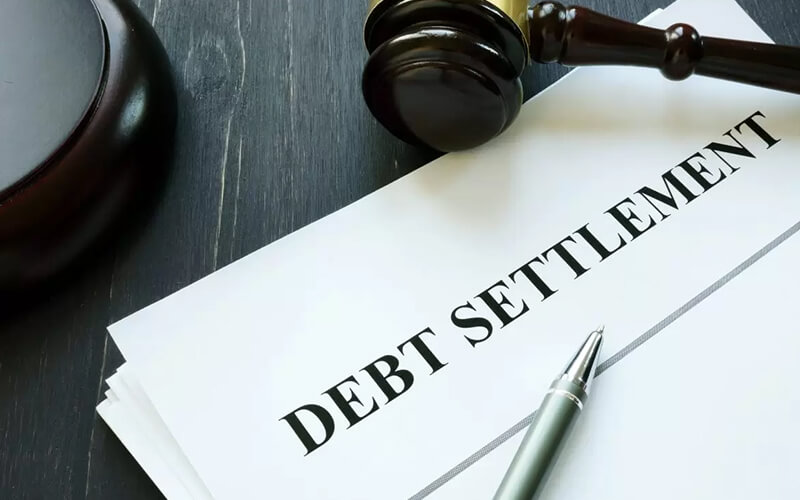When it comes to navigating the intricacies of intellectual property law online, understanding the process of responding to DMCA notices is crucial. Responding to DMCA Notices effectively requires thorough comprehension of the claims made and the ability to craft compelling counterclaims. By promptly addressing DMCA notices with well-reasoned counterclaims, content creators can protect their rights and maintain control over their work. Additionally, it’s essential to utilize transition words to smoothly guide the reader through the process. From analyzing the claims to formulating a strong response, mastering the art of responding to DMCA notices empowers individuals and businesses to safeguard their creative endeavors in the digital realm.
Get A Free Estimate on Website DesignUnderstanding DMCA Notices

Understanding DMCA Notices is crucial for anyone operating online platforms or hosting user-generated content. When content creators or copyright holders believe their rights have been infringed upon, they can issue a DMCA notice, requesting the removal of the allegedly infringing material. It’s essential to grasp the implications of such notices and the legal obligations they entail. Responding to DMCA Notices promptly is imperative to avoid legal repercussions and maintain a positive reputation. Additionally, comprehending the process can aid in determining the validity of claims and taking appropriate action. Therefore, staying informed about DMCA procedures is essential for effective content management and legal compliance.
Definition and Purpose

The purpose of responding to DMCA notices is to address claims of copyright infringement promptly and effectively. When a website or online platform receives a DMCA notice, it must take action to remove the allegedly infringing content or risk legal consequences. Responding to DMCA Notices is crucial for maintaining compliance with copyright law and protecting intellectual property rights. Additionally, promptly addressing these notices helps prevent potential disputes and maintains trust with content creators and users. Therefore, it is essential to establish clear procedures for handling DMCA notices and ensure timely responses to protect both the platform and its users’ interests.
Legal Framework

The legal framework surrounding digital content distribution is vital for safeguarding intellectual property rights and regulating online activities. Responding to DMCA Notices, which are legal notifications sent under the Digital Millennium Copyright Act, is a crucial aspect of this framework. These notices require prompt action from content hosts to remove infringing material. Therefore, understanding and adhering to the DMCA procedures is essential for businesses and individuals operating in the digital sphere. By promptly addressing DMCA notices, content hosts can mitigate legal risks and uphold copyright protection standards, ensuring a fair and lawful online environment.
Get A Free Estimate on Website DesignReceiving a DMCA Notice

Receiving a DMCA Notice can be a jolting experience for content creators and platform owners alike. Upon receipt, swift action is essential. Responding to DMCA Notices promptly is crucial to comply with legal requirements and maintain a good standing within the digital community. Firstly, upon receiving a notice, it’s imperative to carefully review its contents, ensuring a clear understanding of the alleged infringement. Next, gather any relevant evidence to support your response. Subsequently, initiate the necessary steps to either remove the disputed content or provide a counter-notification if deemed appropriate. In doing so, transparency and cooperation with the issuing party are key.
Assessing Potential Risks

Assessing potential risks is a critical aspect of any business operation. By thoroughly evaluating various scenarios, companies can anticipate and mitigate potential threats effectively. One significant risk that businesses face in the digital realm is Responding to DMCA Notices. These notices require prompt action to address copyright infringement claims. Transitioning smoothly from assessment to action, companies must swiftly analyze the validity of such notices and respond accordingly. Additionally, they should prioritize transparency and compliance throughout the process. Proactive risk assessment ensures that businesses can navigate challenges adeptly, safeguarding their reputation and integrity in the process.
Get A Free Estimate on Website Design
Crafting an Effective Counterclaim

Crafting an effective counterclaim is essential when Responding to DMCA Notices. Firstly, it’s crucial to thoroughly review the claims made in the notice. Secondly, gather evidence to support your counterclaim, such as proof of ownership or fair use. Thirdly, clearly articulate your argument in the counterclaim, highlighting why you believe the takedown request is unfounded. Additionally, provide any necessary documentation or legal precedent to strengthen your case. By following these steps, you can effectively challenge DMCA notices and protect your rights as a content creator or platform operator.
Formulating a Legal Response

Formulating a legal response to intellectual property disputes is crucial for protecting one’s rights and interests. When Responding to DMCA Notices, it’s essential to address the allegations promptly and thoroughly. First, analyze the notice carefully to understand the specific claims being made. Next, gather evidence to support your defense, such as proof of ownership or fair use. Then, craft a clear and concise rebuttal outlining your position and legal Arguments. Additionally, consider seeking legal counsel to ensure compliance with relevant laws and regulations. By taking proactive steps and presenting a robust defense, individuals and organizations can effectively address DMCA notices and protect their rights in intellectual property disputes.
Get A Free Estimate on Website DesignSubmitting the Counterclaim

When submitting the counterclaim, it is crucial to address the allegations promptly and accurately. Responding to DMCA Notices requires a thorough understanding of the claims made against one’s content. First and foremost, it’s essential to review the notice carefully to grasp the specific issues raised. Additionally, gathering evidence to support the counterclaim is imperative. Providing clear and concise explanations for why the content does not infringe upon copyright is vital. Moreover, communicating promptly with the platform or entity issuing the notice ensures a swift resolution. Therefore, submitting the counterclaim promptly and with sufficient evidence is essential in safeguarding one’s rights.
Get A Free Estimate on Website DesignResolving DMCA Disputes

Resolving DMCA disputes involves effectively Responding to DMCA Notices, which are legal notifications sent to internet service providers or online platforms regarding copyright infringement. When a copyright holder believes their work has been unlawfully used, they submit a DMCA notice to the relevant platform, prompting an investigation into the alleged infringement. Platforms typically assess the provided evidence and may take actions such as removing the content in question or contacting the alleged infringer. To successfully resolve DMCA disputes, parties must engage in open communication and adhere to the procedures outlined in the Digital Millennium Copyright Act.
Negotiating Settlements or Agreements

When negotiating settlements or agreements, it’s crucial to address issues promptly, such as Responding to DMCA Notices. These notices demand immediate attention to resolve copyright disputes effectively. Transitioning smoothly between negotiation points ensures a coherent and efficient process. By actively engaging with DMCA notices, parties can swiftly reach mutually beneficial resolutions. Proactively addressing concerns facilitates a productive dialogue, ultimately fostering positive outcomes for all involved.
Get A Free Estimate on Website DesignDMCA Notices By Our Software House

At our software house, we receive DMCA notices sometimes. These notices are about copyright issues. It means someone thinks we’re using their work without permission. We take these notices seriously. We want to make sure everything we do is legal and fair. One example is when we offer SEO Training. We need to be careful about using other people’s content in our training materials. So, when we get a DMCA notice, we respond quickly. We want to solve the problem and make sure we’re doing the right thing.







Leave a Reply